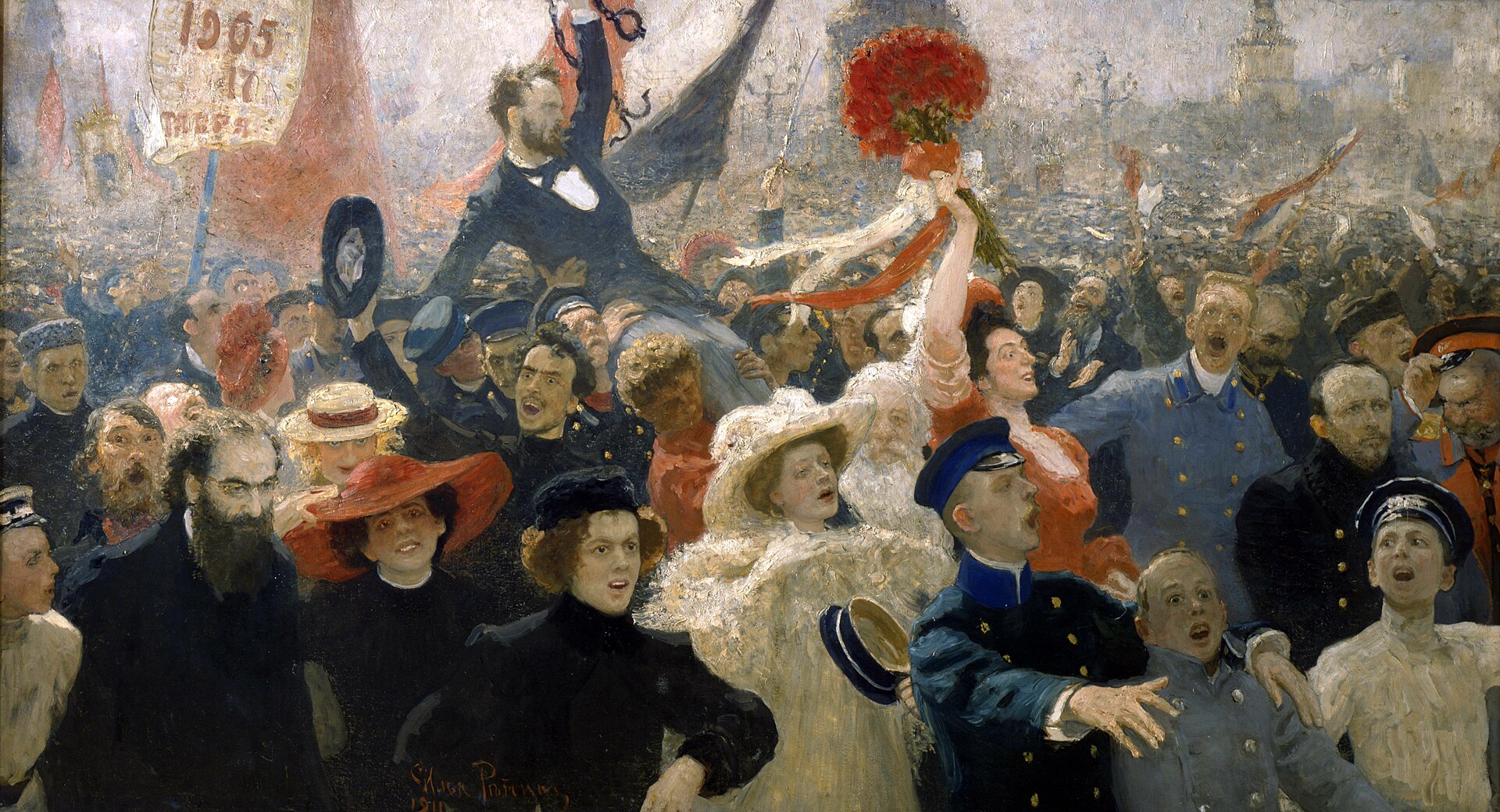-
hipo posted an update 8 years, 12 months ago
October Manifesto – The October Manifesto (Russian: Октябрьский манифест, Манифест 17 октября), officially The Manifesto on the Improvement of the State Order (Манифест об усовершенствовании государственного порядка), is a document that served as a precursor to the Russian Empire’s first constitution, which would be adopted the next year. The Manifesto was issued by Emperor Nicholas II, under the influence of Sergei Witte, on 30 October [O.S. 17 October] 1905 as a response to the Russian Revolution of 1905. Nicholas strenuously resisted these ideas, but gave in after his first choice to head a military dictatorship,[1] Grand Duke Nicholas, threatened to shoot himself in the head if the Tsar did not accept Witte’s suggestion.[1] Nicholas unwillingly agreed, and issued what became known as the October Manifesto, promising basic civil rights and an elected parliament called the Duma, without whose approval no laws were to be enacted in Russia in the future. According to his Memoirs Witte did not force the Tsar to sign the October Manifesto.[2] which was proclaimed in all the churches.[3]
October Manifesto – WikipediaThe October Manifesto (Russian: Октябрьский манифест, Манифест 17 октября), officially The Manifesto on the Improvement of the State Order (Манифест об усовершенствовании государственного порядка), is a document that served as a precursor to the Russian Empire’s first constitution, which would be adopted the next year. The Manifesto was issued by Emperor Nicholas II, under the influence of Sergei Witte, on 30 October [O.S. 17 October] 1905 as a response to the Russian Revolution of 1905. Nicholas strenuously resisted these ideas, but gave in after his first choice to head a military dictatorship,[1] Grand Duke Nicholas, threatened to shoot himself in the head if the Tsar did not accept Witte’s suggestion.[1] Nicholas unwillingly agreed, and issued what became known as the October Manifesto, promising basic civil rights and an elected parliament called the Duma, without whose approval no laws were to be enacted in Russia in the future. According to his Memoirs Witte did not force the Tsar to sign the October Manifesto.[2] which was proclaimed in all the churches.[3]
